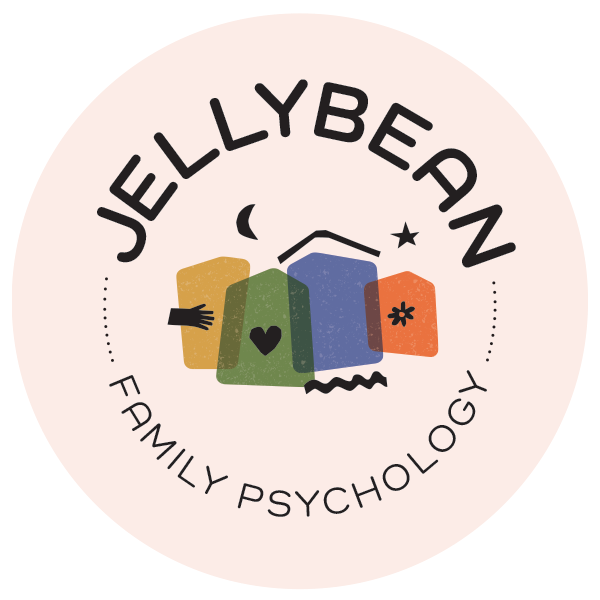Frequently Asked Questions
+ What is an assessment?
Psychological assessment is a process of impartially and sometimes subjectively exploring a client’s knowledge, skills, beliefs, attitudes and emotional, relational and behavioural patterns to help provide answers for questions that are typically posed by the individual, his/her parents (if the client is a child) and/or mental health professionals.
Assessments provide us with a tool to review both strengths and weaknesses in the client’s psychological, social, emotional, academic or occupational disposition, providing an insightful analysis and informing future treatment plans.
+ How does therapy work for children?
To help children to feel safe in communicating their thoughts, feelings and concerns, it is necessary that they appreciate what topics of discussion that can be kept confidential, and what has to be disclosed to their parents/carers.
During the first session, the child, parent/s, and psychologist meet to discuss what types of information the psychologist might have to share to parents/carers, and what will be kept private. For example, if a child reveals activity that puts themselves or someone else at serious risk of harm, the parents/carers must be advised, so that an action plan can be initiated.
+ How long are therapy sessions typically?
Jellybean Family Psychology sessions for individual clients are usually 50 minutes, with 10 minutes allocated to the completion of clinical notes. However, session times can be altered based on the client’s needs.
+ Do I need a referral to see a psychologist?
You can become a client of Jellybean Family Psychology without a referral, however you do need a Mental Health Care Plan from your GP if you would like to claim the Medicare rebate.
+ What are the fees and rebates available?
You can find all the information on the Fees and Rebates page. However, feel free to give Jellybean a call if you have any questions.
Jellybean Family Psychology does not bulk bill. However, we offer a reduced rate for clients who hold a current Centrelink Healthcare card.
+ How many sessions do people tend to see a psychologist for?
The number of sessions you will need will depend on your particular circumstances. Different considerations in this include the nature of the issue being dealt with (acute or chronic), how well you are responding to the therapy and making recommended changes, plus the frequency of your sessions.
It is generally suggested that sessions are scheduled bi-weekly to ensure momentum of your therapeutic development. It is my job as the Psychologist to monitor a client’s progress and discuss treatment time frames during sessions.
+ What should we expect from the first session?
Diagnostic Review/Intake: During the first visit, often lasting 1 hour, I strive to learn as much as I can about the client’s issues in order to determine the required testing needs. I use the information gathered on the intake form and ask any additional questions needed.
To help gain a thorough understanding of the individual, it’s also important to acknowledge what you/your child does well or succeeds in. Please bring any previous evaluation reports for yourself/your child, including school ETR and IEP documents to this session.
Testing/Evaluation sessions (if completing an assessment) : Where possible, I attempt to complete all testing within one visit. Testing sessions typically last 2-3 hours during which I will work closely with you/your child.
For child assessments, parent(s) and sometimes teachers are asked to complete rating forms, to better understand how a child is doing in both the home and school settings. Testing activities may include answering questions, looking at pictures, and completing puzzle-like activities. No preparation or study is necessary for these activities, it is designed for client’s to just do their best to assess their current form.
I always ask that the person being tested eats beforehand with a good night's rest prior. Whether or not to take prescribed medications will be discussed on a case by case basis.
Feedback Session (if completing an assessment) : Once all information is compiled including the completed testing, and all relevant rating forms, the client/parents/carers will attend a feedback session to review results and discuss my recommendations going forward.
During this time, I will provide detailed descriptions and explanations of these results, however all questions are encouraged. This session lasts approximately 1 hour. A written Psychological Assessment Results report will be provided that can then be shared with other treating providers, school personnel, etc at your discretion.
+ What is the difference between a psychologist and a psychiatrist?
Psychiatrists and psychologists both work in the field of mental health but with some fairly significant distinctions between the two roles.
Psychiatrists are medically trained doctors who have specialised in the field of psychiatry, they are able to prescribe medications to treat mental illnesses.
Psychologists generally have at least six years of training in the field of Psychological Science. Psychologists are focused on enhancing a person’s mental state without the use of medication. There is substantial evidence that shows psychological treatments are an extremely effective way to support individuals with mental health issues such as anxiety and depression. Psychological approaches to addressing mental health issues are quite favoured before considering the use of medication. When required, psychologists will also work in collaboration with GPs or psychiatrists to ensure the client receives a comprehensive treatment plan for the best outcomes.
+ What is CBT?
Cognitive Behaviour Therapy (CBT) investigates the connection between thoughts, feelings and behaviours whilst offering the client strategies of how to think and behave in healthier ways. Commonly regarded as one of the most effective treatments for several mental health problems, CBT sessions are eligible for Medicare rebates where a Mental Health Care Plan has been prepared by a GP.
